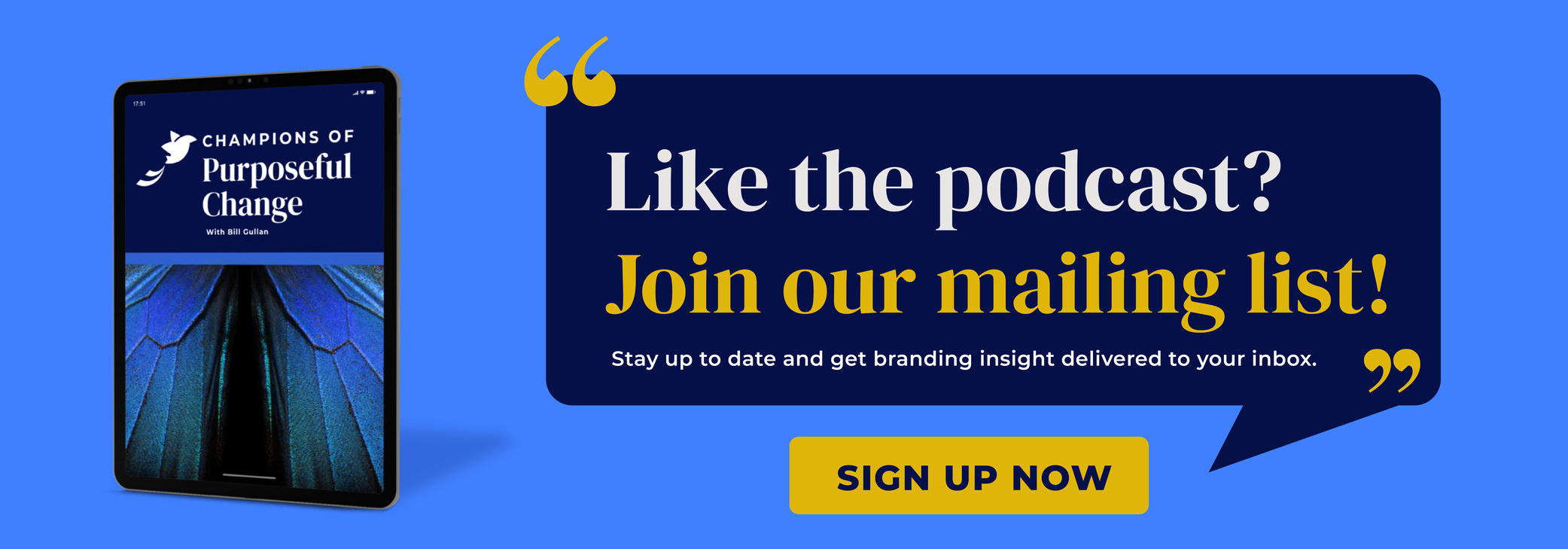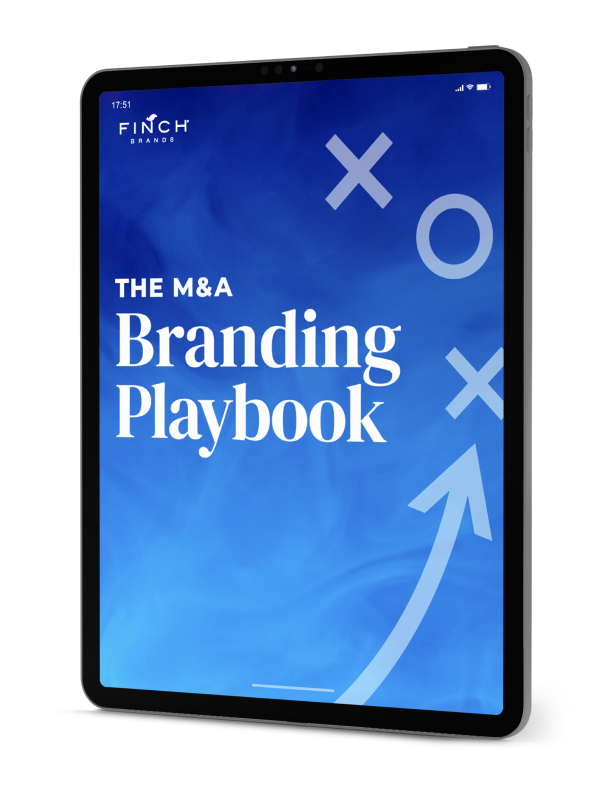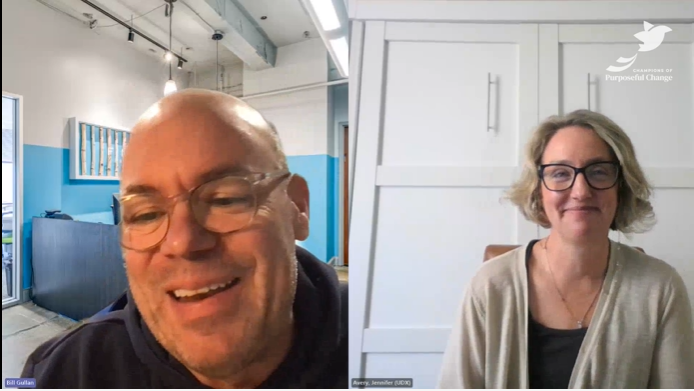One Big Idea – Amazon HQ2

Cities and municipalities across the nation have submitted bids to host Amazon’s second headquarters. With the promise of economic development and job opportunities, its a no-brainer why. In this episode, we look at the role that this opportunity has on both the Amazon brand and the brand of it’s future home. If you like our podcast, please subscribe and leave us a rating!
Podcast: Download Subscribe: iTunes | RSS
Transcription:
Bill Gullan: Greetings one and all. This is Real-World Branding. I’m Bill Gullan, President of Finch Brands, the premier boutique branding agency and this is One Big Idea. In Philadelphia certainly, and in cities and towns across the country, there’s been a lot of buzz both in the general media as well as in economic development circles about Amazon and their intent to build a second headquarters. The codename, I think, is HQ2. And they promise, in the RFP that they issued at least, that it will be in terms of size and scope, very similar to what they’ve done in Seattle. We’re talking about an estimate of 50,000 jobs created through this initiative with about 100 grand in sort of average compensation, so these are headquarters jobs, less about sort of supply chain and logistics, but we assume a lot of that’s tech and engineering and maybe things like marketing too.
The RFP went out in the latter stages. I think it may have been in August and the deadline for participation just passed, and Amazon announced that they received 238 proposals. I’m not sure what they were expecting, but certainly an emphatic response that I believe included all 50 states in the US and certainly folks in Canada as well. The discussion seems to center around who’s going to win. There’s a lot of horse race kind of handicapping here, which regions seem to have advantages that would be appealing to Amazon.
The RFP did go into at least bullet point detail about some of the things that are really important to the team at Amazon who are doing the selection, but it didn’t get too deep into relative priority or things like a business friendly environment, what exactly that means. So we are all left to handicap this and gossip about it and discuss it. Just using Philadelphia as an example, the impact of 50,000 new jobs. One of Philadelphia’s largest and certainly most high profile employers is Comcast, which employs 16,000 people here. Another one is Vanguard, which is in the western suburbs that employs another 11,000. These are two organizations that have corporate headquarters here. If you combine them and double them, that’s the kind of impact you’re talking about, at least in terms of raw job numbers.
And because of the fact that Amazon, at least on the technology side, seems to be particularly appealing to a particular type, a younger person who’s technology inclined and sort of ever interesting millennial cohort to urban planners, et cetera. I mean, this seems like a bonanza. It’s the biggest of its kind sort of corporate, not re-lo, but decision making sort of RFP of its kind in generations, so not a big surprise that so many municipalities have either collaboratively or individually put forth bids.
There’s a lot of interesting stories as to some of the lengths to which people will go. There was one community in Georgia, suburb of Atlanta called Stonecrest, that offered and actually voted in city council. Four-two, mind you, was the vote, that if selected they would replace the name Stonecrest, Georgia and make it Amazon, Georgia. Talk about branding. We’ll get to branding in a minute. When we look beyond and beneath elected officials and economic development folks and city tourism and hospitality boosters, it’s a complicated story. There is a counterpoint here as to arguing that a particular region shouldn’t go after this or that it wouldn’t ultimately be in their interest to have it. The obvious, in terms of prestige and jobs and tax base and everything else, is counterbalanced by some concerns about gentrification and the increase in housing and other prices.
You look at the Bay Area, for goodness’ sake, with all of these tech employees. Nobody can live there. Not nobody, but very few folks. It’s not a livable type of environment in the Bay Area. Also, part of the RFP and thus part of the response is: What can you do for me? What are the tax breaks that municipalities are going to promise to Amazon in order to make this thing real and is it worth it? Are they worth it? Does it crowd out other folks? Where does the money come from? There are a host of concerns. Many cities that have … Gentrified may not be the right word, but cities that have undergone some degree of sort of economic revitalization. It’s happened in the urban core in the central business district. It hasn’t always happened in the neighborhoods, or at least some would argue it hasn’t always happened in the neighborhoods and the net effect of this, they argue, would be a further obscuring of the needs of neighborhoods of folks who already live here in pursuit of chasing those who don’t yet.
There’s a pretty interesting dialogue on editorial pages and on social media and on panels about what’s sort of the costs of victory here are. You always see articles every four years about the costs of winning and hosting the Olympics. This, while different, has a similar debate. Now, polling at this point, at least of the general consumer market, Morning Consult reports that among a cross sample of average American respondents, 72% would want Amazon to locate either in their town or the nearest city, so that’s a pretty emphatic positive response. I think folks can certainly see the impact on property values, the impact on geographical sort of prestige and the economy, because it’s not just Amazon. It’s all the businesses that spring up to serve it, the businesses that spin out of it four or five years later when folks want to do something entrepreneurial. Long lasting impacts and 72% think it’s worth it.
Actually, this is sort of colored by, Morning Consult does their brand favorability ratings and one of the things that’s interesting when we talk about brands is, Amazon’s favorability is really high. It’s 76% and that’s much higher than … I actually don’t know the numbers off hand, but much higher than your Wal Marts and your others, which to me is a little bit surprising given the degree to which Amazon, certainly in its infancy and as it was really taking hold, the criticisms in terms of really decimating the publishing and book industry, as well as in the same way that Wal Mart’s been criticized hurting local businesses and costing jobs at community hardware store levels and things like that. Amazon has certainly had an impact on that up to and likely well beyond and certainly in the future. Your Wal Marts and your Targets and your other sort of big boxes that have crowded out, some would argue, local businesses.
Amazon has remained, though, at least it is today, largely above the fray in that debate. Amazon is greatly valued for its convenience and its pricing and all that Prime means in terms of free shipping on incremental orders, though you certainly pay for it through your subscription. But Amazon, there’s all sorts of data around the way our economy’s changing and the role of Amazon and driving eCommerce, so don’t need to rehash that. But it is interesting to see that Amazon for such a large, and we would think polarizing brand, has such a strong net favorability, 76% of you view the brand favorably.
Many, many different debates here. There are brand implications, though, that we shouldn’t ignore beyond just economic development and sort of the pro and the con of how Amazon impacts local economies. There are certain cities and sort of urban areas, municipal areas, that have become at almost a brand level, very strongly associated with an industry, or a major employer, or a couple of major employers. We look at Seattle, for example, which obviously has Amazon and has Microsoft out in Redmond. But for a long period of time, Seattle was very closely and is closely associated with Starbucks and with coffee. Seattle’s Best is there too. In fact, the sort of emergence of Seattle on the national stage was kind of a mixture of flannel and grunge and coffee in the 90s.
Charlotte, North Carolina, the city, high growth city where I spent a lot of time earlier in my career, was known, is known, very strongly for banking because at the time Nations Bank, although Bank of America now, was headquartered in Charlotte and so was, at the time, First Union, which is now part of Wells Fargo. These made Charlotte, I think, the number one or at least number two banking center in the nation, despite being the 22nd or 23rd largest sort of DMA. So banking and Charlotte were really strongly associated too.
LA, of course, is very strongly associated with entertainment. San Francisco’s associated with the tech sector. The role and reality of corporate location has a really big impact on municipal branding, both from a perspective of corporate as well as individual relocation. Has to do with where you go to college. Has to do with where you choose to migrate in your career and in your life, where you choose to visit with your leisure dollar. There’s significant brand implications, I think, to this choice that extend beyond just the economic development impacts, again pro and con.
On the sort of positive side of the ledger, if you’re a rust belt city or another former manufacturing city like a Baltimore, or a Philadelphia here, or a Pittsburgh, not to mention Detroit and others, Amazon arriving is not just sort of a financial shot in the arm. It is an opportunity to write a new story about technology and about the future and about progress, and to bring those cities into the 21st century in many ways. Amazon has that impact. I’m not sure whether Jeff Bezos cares or has sort of a savior complex or not, but the impact to the local economy and the perception of Amazon going, shall we say, to New York versus Baltimore is a totally different proposition, and so to the degree that it matters that Amazon arriving is a seismic event, there are certainly cities on that list for whom it would be such a thing. I think sort of rust belt, or old economy, or manufacturing cities of the sorts that we mentioned are certainly motivated for economic reasons, but also for prestige and sort of brand level reasons to pursue Amazon in this case.
There are probably some brand concerns as well. As noted, Amazon is a brand that is overwhelmingly viewed favorably at this point, but certainly has the opportunity and a past of being polarizing. Company towns, so to speak, lose a little bit of their own identity, and if Philadelphia, or Baltimore, or Pittsburgh become sort of Amazon, PA, or whatever the case may be, that has a profound brand impact too, that folks should think about.
Let’s close with a little bit of how the current sort of handicapping is working here. An Irish bookmaker, I think it was Paddy Power and some others have published odds related to Amazon’s HQ2 and where it will be placed. And according to Paddy Power at least, and I don’t know what this is based on, but it’s an interesting discussion. Atlanta has a three to one odds currently posted. Makes sense. Atlanta has Coca Cola and many other sort of big corporate headquarters or regional corporate centers. It has a very pro business clime and it has a great combination of engineering and technical education with Georgia Tech, with Emery, with many other colleges and universities within Atlanta. It’s also a part of the country that’s booming. You don’t have issues with labor there.
At the same time, reasons why Atlanta might not be as strong is, the transit system isn’t as great. There’s a lot of elements here that we don’t, again, know how they’re going to be weighted. But Atlanta is considered to be the favorite based upon the bookmaker Paddy Power, followed by Austin, which has obviously a strong tech economy already. Followed by Boston, which was [inaudible 00:13:19] too, and certainly has a set of feeder higher education institutions when it comes to the kind of credential workforce that Amazon is seeking.
And then you have others, Toronto in there representing our neighbors to the north. Great city. The District of Columbia too, which has tech corridor. Northern Virginia has obviously proximity to government. Bezos already bought the Washington Post, so presumably has a couple of homes there at least. It’s also conveniently located on the eastern seaboard. Portland is there, which would be interesting because that certainly doesn’t represent geographical diversity with Seattle, but there’s probably some convenience in that. Then you get to the level of Pittsburgh at Philadelphia down there at 14 and 16 to one.
Let’s wrap it up. The Amazon HQ2 conversation is fascinating. It is significant in terms of what it says about the future of cities, what it says about the future of economic development, and for one municipality or geographic area that’s going to win this. Again, there’s a couple schools of thought about whether the net effects of that will be overwhelmingly positive, or a little bit positive, or on the other side of the ledger. But there also will be impacts to the brand, and in some cases it could be a very positive jolt of energy. In other cases, folks run the risk of really being perceptually linked for a very long time with one particular company whose fates rise and fall. We’ll sign off from the cradle of liberty. Thank you all. Have a great day.







